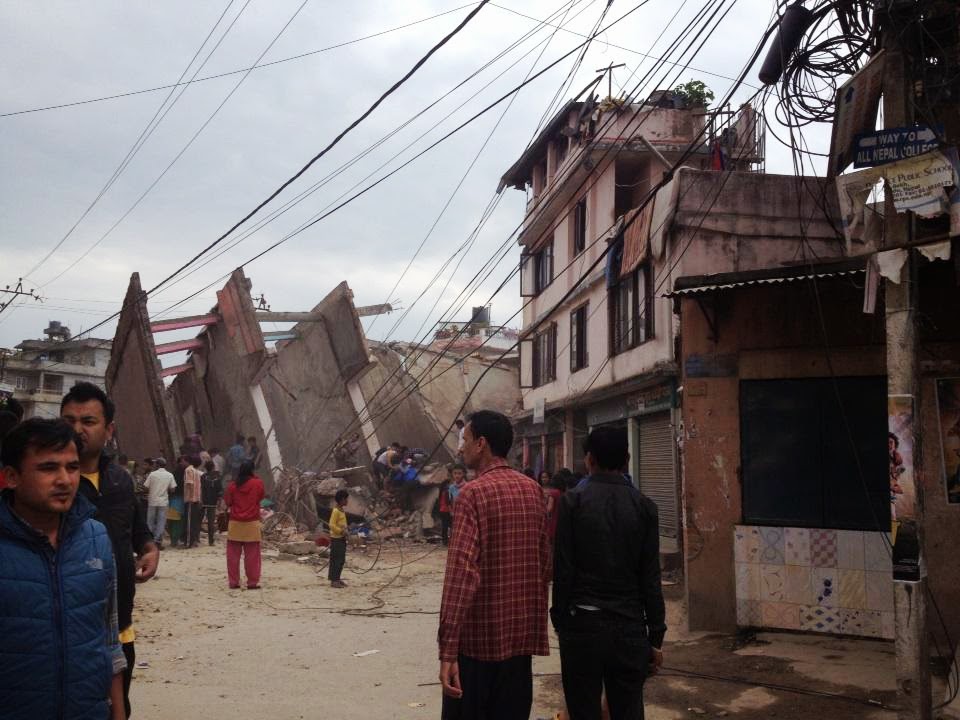A Massive earth quake lasting well over a minute were felt across northern
India after a 7.5 magnitude earthquake hit Nepal this morning.
Tremors were felt across eastern and northern parts of India, said JL Gautam, Head Operations Seismology of Indian Meteorological Department (IMD). "Earthquake of magnitude 7.5 occurred today at 11.41 AM between latitude 28.1 North and Longitude 84.6 East. The epicentre was located in Nepal," an IMD statement said.
In Delhi and parts of the National Capital Region, people were seen running out of their houses after buildings shook for well over a minute. However, there are no reports of any damage in Delhi.
Delhi Metro service is stopped for a while.
Tremors were also felt in Patna, Lucknow, Kolkata, Jaipur, Chandigarh and other cities.
Nearly half an hour after the first tremors, aftershocks were felt again around 12:20 pm across North India.
South Indian cities like Chennai and Kochi also effect some sort of small shakes
--
--
Tremors were felt across eastern and northern parts of India, said JL Gautam, Head Operations Seismology of Indian Meteorological Department (IMD). "Earthquake of magnitude 7.5 occurred today at 11.41 AM between latitude 28.1 North and Longitude 84.6 East. The epicentre was located in Nepal," an IMD statement said.
In Delhi and parts of the National Capital Region, people were seen running out of their houses after buildings shook for well over a minute. However, there are no reports of any damage in Delhi.
Delhi Metro service is stopped for a while.
 |
| There have been no official reports of damage or injuries. However, Reuters witness said some buildings in Kathmandu had collapsed. |
Nearly half an hour after the first tremors, aftershocks were felt again around 12:20 pm across North India.
South Indian cities like Chennai and Kochi also effect some sort of small shakes
- Expect aftershocks. These secondary shockwaves are usually less violent than the main quake but can be strong enough to do additional damage to weakened structures and can occur in the first hours, days, weeks, or even months after the quake.
- Look for and extinguish small fires. Fire is the most common hazard after an earthquake.
- Be aware of possible tsunamis if you live in coastal areas. These are also known as seismic sea waves (mistakenly called "tidal waves"). When local authorities issue a tsunami warning, assume that a series of dangerous waves is on the way. Stay away from the beach.
- Be careful when driving after an earthquake and anticipate traffic light outages.
--
--
